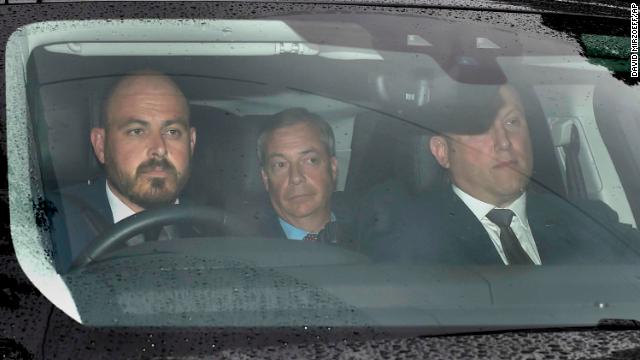“He is a very controversial president, and we’ve all got used to that over the past two years,” said the British foreign secretary, Jeremy Hunt, who greeted President Trump on his arrival for a state visit on Monday, possibly saying all that needed to be said.
How times have changed. Two years ago, Mr. Trump’s outrageous comments and tweets while a guest on foreign soil — calling the London mayor a “stone cold loser,” the leader of the opposition party “somewhat of a negative force” and the protests against his visit “fake news” — might have caused major shock. The inclusion of the president’s adult children in official events like a state dinner might have raised eyebrows. And the mockery of the president in the streets, including a giant statue of the president atop a golden toilet named the Dump Trump, would surely have created a stir.
But back then state visits were minutely choreographed affairs in which every utterance and gesture was laden with diplomatic nuance, and the hosts and guests were expected to show respect and deference for each other. Not this president. Mr. Trump has seemed perfectly happy to take his Twitter attacks, political feuds, outlandish statements and brazen lies with him on the road, and to wade shamelessly into his hosts’ affairs.
He sang the praises of Nigel Farage, the far-right anti-European Union politician, and Boris Johnson, a leading candidate to succeed Theresa May as prime minister (though Mr. Johnson declined an invitation for a one-on-one meeting); he declared Britain the United States’ biggest trading partner, a fact, he said, “a lot of people don’t know.” They don’t because, so far this year, Mexico is; Britain is seventh (as it was last year, too).
The quips and tweets made news, of course, but the shock value was gone, and much of the coverage focused happily on the Downton Abbey theater that the British royal family does so well. Queen Elizabeth II, diminutive alongside Mr. Trump, seemed to enjoy showing him and his family around her palace, and the president grinned happily in his sorely ill-fitting white tie and tails at the royal feast. There was really nothing else to this extremely costly state visit, since Mrs. May is a lame duck, her successor is unknown and British politics are in utter disarray over Brexit.
As is his wont, Mr. Trump simply denied all the evidence of his extraordinary unpopularity in Britain. He claimed that he had been greeted by “tremendous crowds of well-wishers” and that there was “great love all around.” In fact, an online petition opposing the visit garnered 1,863,708 signatures and a recent YouGov poll found that two-thirds of British respondents had a negative opinion of him. The speaker of the House of Commons would not allow him to address Parliament, and among notable figures missing from the 170 guests at the state dinner in his honor were Prince Harry and his wife, Meghan Markle, and the heads of the Labour and Liberal Democrat Parties.
And if Mr. Trump’s visit did not draw as many protesters to Trafalgar Square as his visit last July, the mockery was still crude, including the same giant orange balloon of Mr. Trump as a scowling baby wearing a diaper and clutching a cellphone that debuted in July, and a forest of placards with messages such as “Make America Great Again. Impeach Me,” “Climate change is real, your tan is not” and “Free Melania.” Some protesters carried portraits of the late John McCain, following the efforts of the White House to conceal from Mr. Trump’s view in Japan a Navy destroyer partly named for the senator, whom the president disliked.
It may come as something of a relief that Mr. Trump’s behavior is increasingly familiar to America’s allies, and so not cause for scandal. But there is nothing to celebrate when mockery of the American president in a friendly capital has become the new normal.
The Times is committed to publishing a diversity of letters to the editor. We’d like to hear what you think about this or any of our articles. Here are some tips. And here’s our email: letters@nytimes.com.
Follow The New York Times Opinion section on Facebook, Twitter (@NYTopinion) and Instagram.
https://www.nytimes.com/2019/06/04/opinion/trump-britain-visit.html
2019-06-05 14:42:00Z
CAIiEJX839bWLaEWtSgYLwIoTAkqGAgEKg8IACoHCAowjuuKAzCWrzwworyzBg



